“There is now a quickly increasing understanding outside of the
western sphere that the dollar comes with risk.”
Dave Collum: I did a podcast with Rudy one day. Rudy's the only guy on Twitter where you can just say "Rudy" - it's like saying "Prince," or "Sting."
Michael Farris: He needs a symbol.
fyi I had an acute infarct this weekend - probably due to the recent solar storms. My left leg, arm, and hand are a step behind (which is irritating because I use a left-handed mouse.) Expect more typos. I can still walk, talk, and chew gum, but awkwardly. I may be more sporadic as I attempt to recover. Godspeed and thanks for prayers.
“So let me ask you this - so you buy a government bond for 30 years…you can’t sell it, you can’t trade it, you can’t hedge it…what would you demand, given all the unknowns in the world, to lend money to the U.S. government for 30 years?”
12%?
“Yeah, that’s a good guess, right? It might be right, it might be wrong. What I do know is it’s not 5%. It means the most liquid market in the world is mispriced by a monstrous component, because no one ever guesses below 10%.”
Russell Clark
“One of the most fascinating things about the Japanese, economically speaking, is that almost its entire foreign reserves are made up of US treasuries, with almost no gold. As the right hand side column below shows, the share of gold as foreign exchange reserves is highest for the “old world”, while new powers such as China, Japan, Taiwan and Saudi Arabia have relatively low shares.”
Clark: “While China has larger foreign reserves than Japan now, Japan basically “invented” the idea of sovereign bonds as foreign exchange reserves. During the gold standard days, if a country like the US wanted to consume more than it produced, it would need to transfer gold overseas. With limited gold supply, this limited consumption. Moving to a treasury based financial system essentially removed this constraint. The only issue is whether other governments would accept treasuries or not.”
“I am still baffled to why retail investors prefer treasuries to gold.”
Clark: “The Japanese may well be caught in a doom loop, where they need to sell more foreign reserves to prop up the currency, which cause US yields to rise, which causes the Yen to weaken further and so on. Until and unless the BOJ becomes more aggressive, Treasuries look like to have a systematic buyer turn into a systematic seller. China is likely a seller of treasuries and buyer of gold for political and strategic reasons, and Japan is a seller of treasuries for economic reasons. I am still baffled to why retail investors prefer treasuries to gold.”
What a waste of time!
“Bernanke did a lot of things that by hindsight I don’t feel very good about, one of the worst was forward guidance. You got a bunch of academics talking about sending message to the market. You know, as a practitioner, I’d rather them just get rid of the whole forward guidance and just do their job.”
Private Equity
“I feel like we are moments away from a Truman Show-like moment where we wake up in PE-owned homes that get their power from PE-owned utilities; drive on PE-owned highways to our PE-owned businesses; who offer benefits from PE-owned insurers at PE-owned hospitals and dentists...Then after work, we head to PE-owned stadiums where we see PE-owned sports teams whose players are represented by PE-owned agents. On our way home, we listen to musicians, whose catalogs are owned by PE-firms. Meanwhile all of the debt of these companies is owned by private credit funds managed by or by insurance companies owned by PE firms.”
Via Grant’s
“There’s a party in global credit, and (almost) everyone is invited. Investment-grade firms priced some $53 billion of bonds from Monday through Wednesday per Bloomberg compiled data, the busiest three-day period since 2021. Junk supply likewise registered at a healthy $11 billion over that stretch, marking the most active week since February with two sessions to spare, while European high- and speculative-grade borrowers priced roughly $23 billion despite an array of holidays on the Old Continent.
Lenders and borrowers alike are living their best lives these days, as credit spreads for both junk-rated and high-grade firms sit near their tightest of the post-crisis era, while meaty all-in rates relative to the ZIRP-era norm helps drive investor interest.”
Multifamily
“As we sit here right now, it's middle of 2024, single family residential real estate has held up quite well throughout the last couple of years - in fact, in some markets it's up, but office properties are completely in the toilet. I mean there's office buildings right now selling at 20, 30 cents on the dollar from past trades so, yeah, that's a massive correction. Multifamily kind of sits somewhere in the middle, where prices are definitely down. I think prices in multifamily are down 30% to 40% from where they were at the very peak in 20221, so there has been a big correction in multifamily real estate and and that's going to create issues.”
Brian Burke (on a normally very bullish real estate podcast)
CRE Debt
“Blackstone's big gamble”
“By offering an annual dividend of about 4% in a world where interest rates were close to zero, BREIT quickly became a giant.”
“In recent months I've spoken with veteran analysts, accountants, and investors who have come to believe that BREIT is essentially a house of cards. That's because the returns the fund claims it has delivered depend almost entirely on BREIT's own estimates, which skeptics believe are wildly inflated. What's more, when BREIT faced a flood of redemption requests from investors, it only fulfilled all those requests after raising cash from new investors — including one that received a sweetheart deal from Blackstone to invest in BREIT. "It is the absolute definition of a Ponzi scheme," said Nate Koppikar, who runs a hedge fund called Orso Partners that has shorted Blackstone's stock because of concerns over BREIT. Unless the real-estate market comes roaring back, analysts warn, BREIT could end up shrinking to a fraction of its current size, leaving the fund's investors holding the bag…
McCann, who is now a principal at SLCG Economics Consulting, reached a similar conclusion. He calculated that the cumulative returns of other funds in the sectors in which BREIT is concentrated plunged by over 30% in 2022. Yet BREIT claimed that its value increased during the same period. In the dry language of market analysts, McCann called the fund's claims about its NAV "unreliable."“
“It's completely possible, of course, that BREIT will survive, no matter how flawed its model might be. If the real-estate market reignites, that will boost the value of the assets in funds like BREIT. And if enough new investors are willing to place bets on BREIT — if trust in Blackstone's "magic" remains high — then everyone will keep making money, if only on paper, even if BREIT is overvaluing its assets. Blackstone's success has already created at least three billionaires, chief among them its CEO, Steve Schwarzman, who is worth almost $40 billion. The ability to enrich yourself seems to be a key part of what inspires others to follow your investment advice.”
Archived Link. Note that this was the original headline:
“Arbor Realty Trust – Fraud”
No position. I just don’t like frauds. Not saying Arbor is involved in anything like that. Just passing on a link.
I have mentioned Arbor in the past:
Related: “Arbor modifies $1.9B in loans as delinquencies keep rising”
“The mortgage fraud scam exposing broader cracks in small-time commercial lending”
What actually happened was that three investors — Boruch Drillman, Fred Schulman and Mark Silber — had allegedly stolen Fuchs’ identity, forged his signature and bought the apartments for $70 million. Then the fake Fuchs flipped them to the real Drillman for $96 million, according to the Department of Justice.
With the higher price, Drillman was able to score a $74 million loan from JLL, meaning the investors were putting in essentially no money of their own, since the loan and actual purchase price were close to the same amount. The JLL loan was quickly offloaded to Fannie Mae.
It wasn’t an isolated scam.
Magic Money Tree
“Another irony is that despite MMT being primarily, though not exclusively, embraced by progressives, it is serving to further exacerbate the wealth inequality situation in this country. The history of prior MMTs is that they consistently lead to high inflation. As we are seeing today, rising inflation often raises the cost of life’s essentials the most, thereby inflicting the greatest harm on the poor.”
"21st-century central bankers are many things. What they are not is original. QE, financial repression & other post-2007 radical monetary innovations got a fair trial in France exactly 300 years ago. In the resulting spectacular boom & bust is a cautionary story for our time."
Ed Chancellor in Grant’s, 2018
“About 42% of those with household income of more than $100,000 report being behind or delinquent on BNPL payments.”
“A recent survey conducted for Bloomberg News by Harris Poll found that 43% of those who owe money to BNPL services said they were behind on payments, while 28% said they were delinquent on other debt because of spending on the platforms…
More than half of respondents who use BNPL said it allowed them to purchase more than they could afford, while nearly a quarter agreed with the statement that their BNPL spending was “out of control.” Harris also found that 23% of users said they couldn’t afford the majority of what they bought without splitting payments, while more than a third turned to the services after maxing out credit cards…
Almost half of those using BNPL say they've started, or have considered, using it to pay bills or buy essential items, including groceries.”
Chicago Fed
“According to our analysis, from 2007 through 2010, foreclosures rose approximately 800% among prime borrowers, but only 115% among subprime borrowers. Over the same period, 40% of all foreclosure starts were among prime borrowers and 26% were among borrowers whose pre-delinquency credit score (see note 4) was over 700. This is one defining characteristic of the Great Recession: A much broader range of individuals, including those who had very high credit scores, were swept up in the collapse of housing markets.”
“Temporary meaning it’s temporarily $2 before it’s $4.”
The Grant Williams Podcast: Simon Mikhailovich
“Jay Powell says…the federal government is a non-sustainable fiscal path. What does that mean? So everybody hears him saying it, but nobody connects what he’s saying to the actual implications of what he’s saying and that’s a failure of imagination. That’s a gross collective failure of imagination. And let me give you a specific example, which is very tangible, very real, and very easy to understand.
The Titanic disaster, aside from all the movies and all this stuff, there’s a very, very big lesson in there. And the lesson is this: It becomes a euphemism for disaster, but it was built to be unsinkable, and the designers of it and the operators and the owners of it believed it to be unsinkable. And because they believed that it was unsinkable, they provided lifeboats for 50% of the people aboard.
…The crew came aboard the day before the ship sailed. There was no training and preparation, so they had never deployed these lifeboats. They had no training, so this was a failure of the imagination. It was a failure of preparation. When disaster struck, they still didn’t realize that the ship was going to sink. So they didn’t start deploying the boats right away. And when they deployed the boats in a hurry, they were only filled to about three-quarter capacity. So two-thirds of the people aboard die…
Everybody’s worried, because we’re hearing about the war in Ukraine, the war in the Middle East. Finally, New York Times and Wall Street Journal and mainstream press is starting to say, “Well, maybe there’s sort of a global geopolitical confrontation along the lines of the axis of evil...that’s starting to come back. But it doesn’t feel real to most people in the West, because first of all, America has never been invaded and has never been attacked except for terrorist attacks directly. “So financial professionals have never been through a real crisis where the bailout hasn’t happened.
Fallacious thinking prevails. For example, in respect to recent rise from a year and a half ago, whatever of interest rates where it said, “Look, everybody thought that everything was going to blow up when interest rates were going to raise, and nothing happened.” That’s not true. The financial system failed again.
When that Silicon Valley Bank collapsed, it’s only Silicon Valley Bank. But in the weekend, the Fed and the Treasury deemed it to be significant enough to have bailed out the entire banking system. They guaranteed all the deposits. They suspended market-to-market accounting on bonds. They opened the window to lend against bonds that were trading 40% underwater at par to accept that collateral at par.
These are unprecedented moves. They happened so quickly…people take it for granted and continue to take for granted that the Fed will do whatever it takes, no matter what happens.”
Zoltan Pozsar
Some aberrant thoughts on Warren Buffett
“I don’t mind saying that the kind of groupies that adore Buffett as a hero on a moral level are completely detached from reality. While he certainly made many outside investors rich a long the way, to say he created significant value for society broadly isn’t quite correct. He has been very adroit at buying durable cashflows on the cheap. To say this another way, he has been very good at getting other people to make bad deals for themselves. As Alice Schroeder wrote in The Snowball, many entrepreneurs felt hard done by Buffett over the years…
All kinds of elements of Buffett’s private life are likewise less than ideal, and I doubt many out there would strive to emulate them. Nor his politics, if you don’t mind me saying. While he’s celebrated for his philanthropy, I have always found it unsettling that most of the early money he spent in this arena was aimed at population control. Emblematic of the boomers who have come after him, he has supported a number of luxury causes that effectively pull the gangplank up after the incumbents are already onboard. The list could go on and on.”
Mortgage Expert Melody Wright on Freddie Mac’s plans to enter the HELOC market Everything the government does is intended to make housing prices higher than they would otherwise be.
Unsolved Mysteries
“On September 11th 1990, a Peruvian Boeing 727 with 16 crewmembers on board went down off Newfoundland, Canada. In a distress call overheard by two other aircraft, the pilot of the doomed jet reported that they were low on fuel and preparing to ditch. But no trace of the plane was ever found.”
Thomas Jefferson University
“Leverage and illiquidity are the kiss of death."













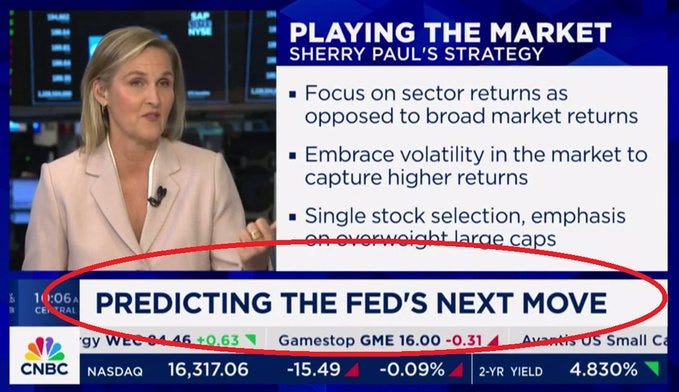
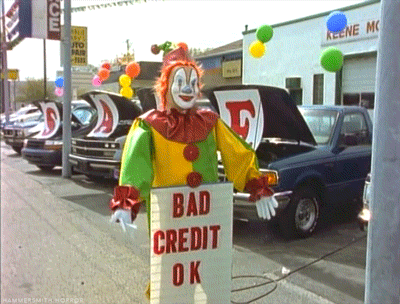









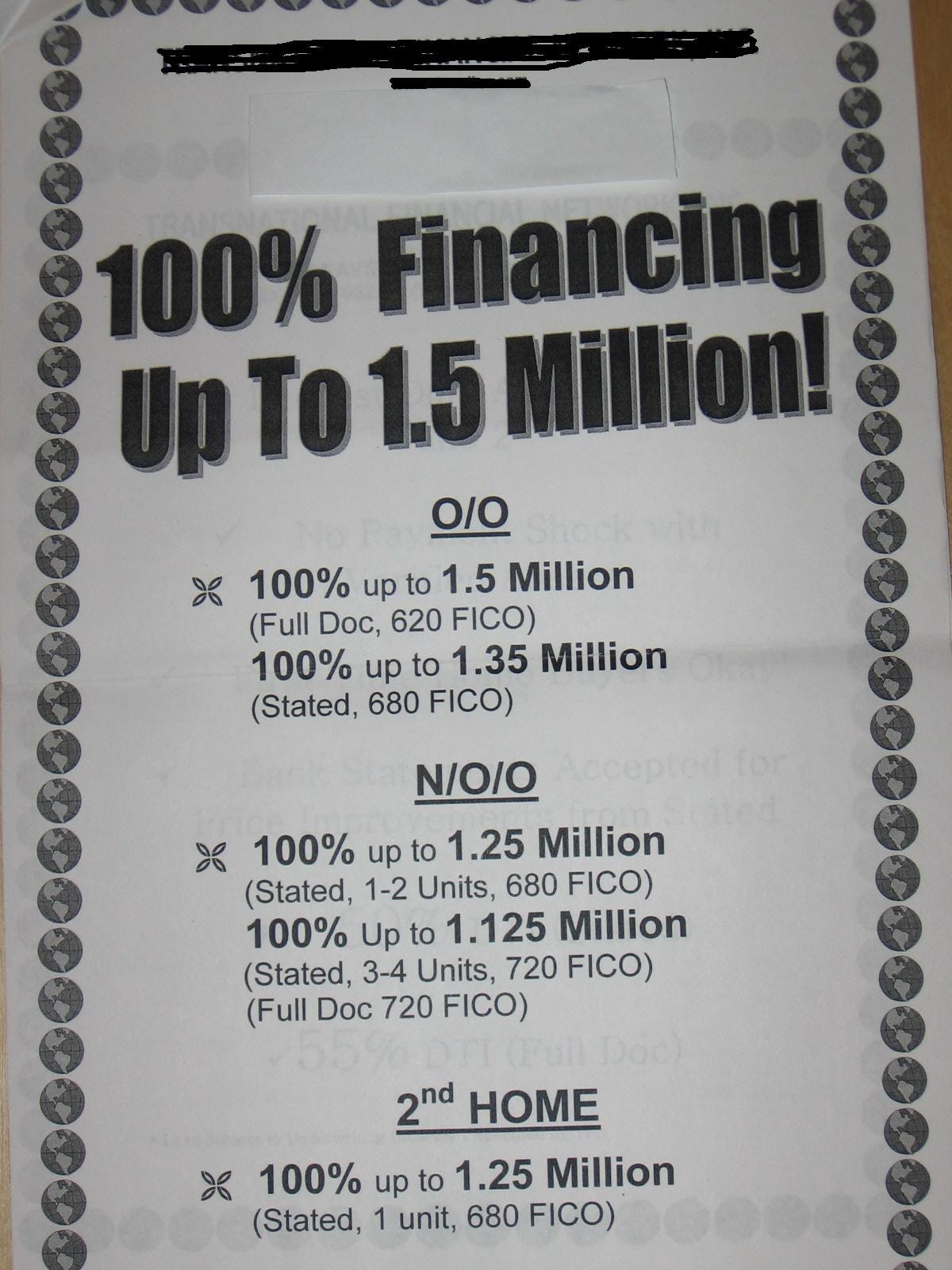
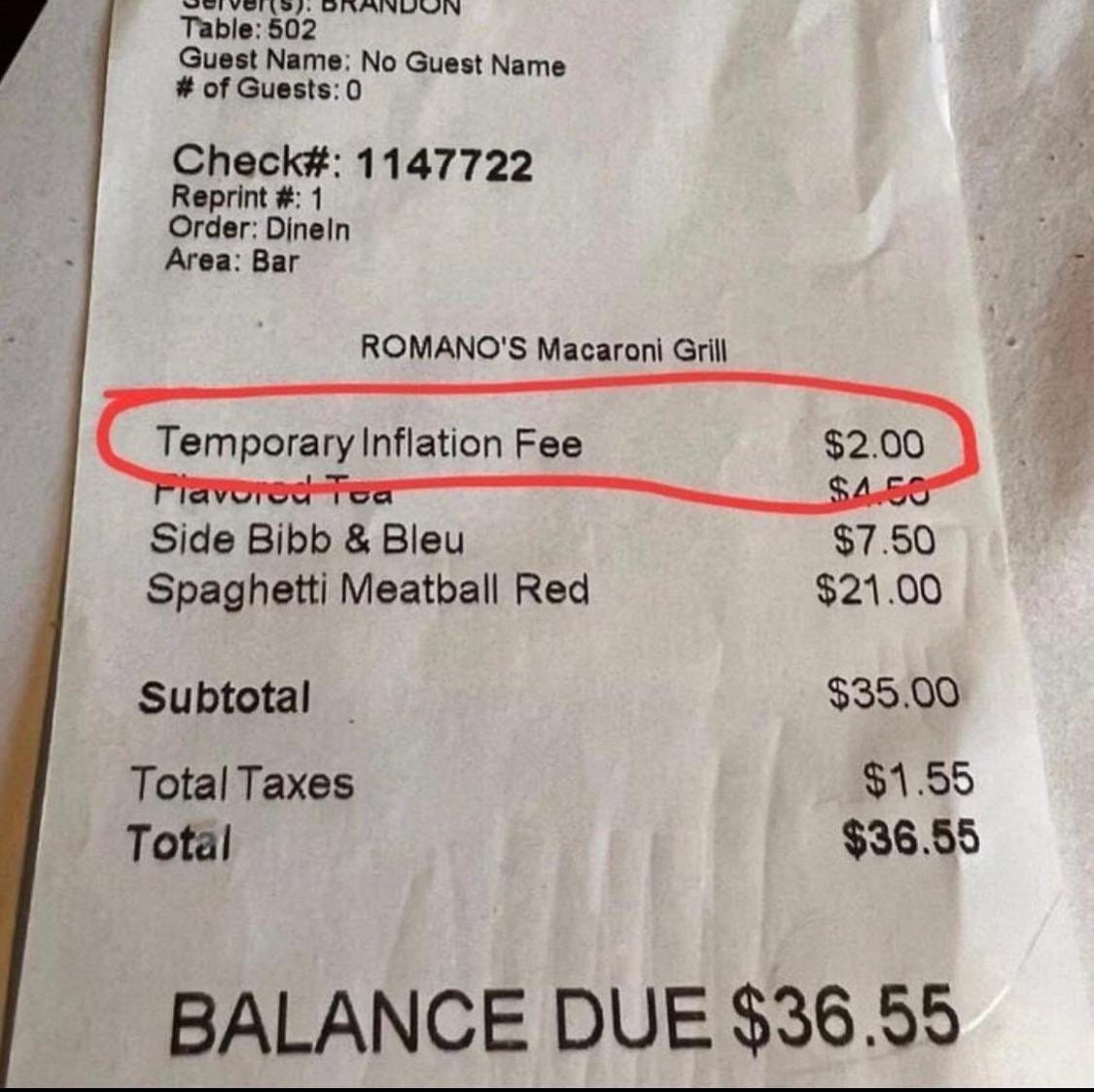
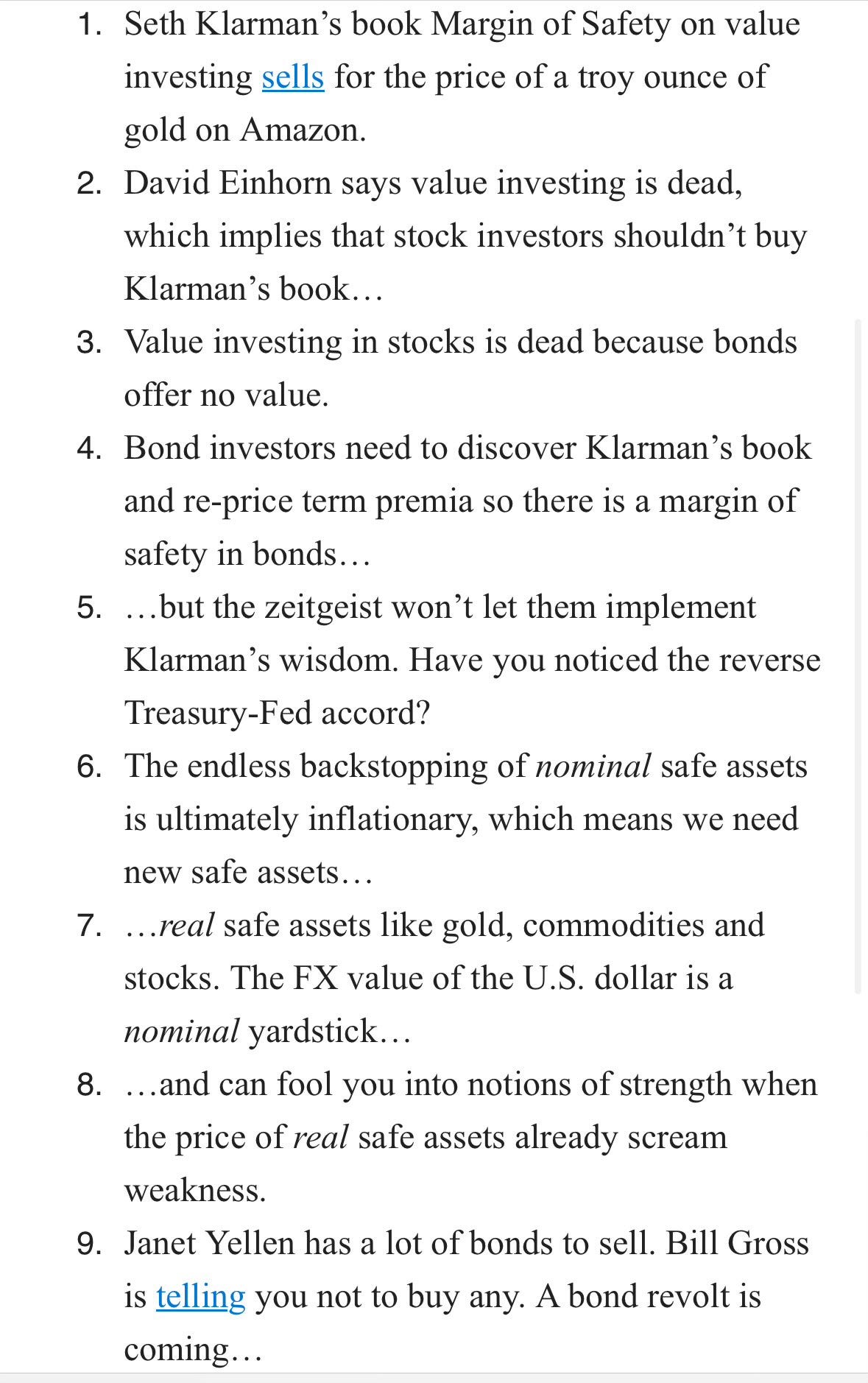


Hope you feel better soon!
Praying for a quick and complete recovery. Just listened to this podcast Saturday. https://pca.st/episode/bf120efa-4b69-4892-a85e-7f318797bb2b. Dr. Scott Sherr discussing hyperbaric treatment. States they can help with stroke recovery.